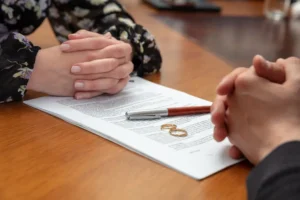Can I Modify My Divorce Settlement?~2 min read
Texas law makes it clear that a final judgment concerning the division of community property cannot be modified. Other orders, such as those for child support, child visitation, and spousal support can be modified if there has been a change in circumstances since the original order, but the order dividing community property cannot be modified.
Even if it is discovered that one asset was not divided, that is not considered cause to modify the final judgment. There is one narrow exception. If the judgment was based on “fraud on the community,” the court may revisit the property division and issue a new property division order.
Elements of Fraud for Setting Aside a Final Judgment
It is a heavy burden to have a final judgment set aside due to fraud. The elements you must prove are:

- Your former spouse made a false statement of fact.
- Your former spouse knew or should have known the statement was false.
- The false statement was made specifically with the intent that you would believe it and rely on it when agreeing to the property settlement.
- You reasonably relied on that false statement to your detriment.
A false statement may involve hiding an asset or misrepresenting the value of an asset.
Defenses to Allegations of Fraud
Your former spouse may defend your allegations of fraud by claiming:
- He or she had no way of knowing the representation was false.
- Even if he or she knew the representation was false, the false statement was an opinion and not intended to be taken as fact.
- There was no intent to deceive.
- The spouse who relied on the false statement should have known it was false and conducted an independent investigation.
Remedies for Fraud Affecting the Divorce Settlement
Courts are reluctant to set aside final judgments, and you have a heavy burden of proof when alleging fraud. If you meet your burden of proof, the court may fashion an equitable order which may include:
- If one spouse fraudulently received property, that property must be returned to the community, and the entire settlement will be revisited.
- If one spouse committed fraud, the court may award the hidden asset entirely to the aggrieved spouse.
Consult with Springer & Lyle
If you believe your former spouse committed fraud by hiding assets during your divorce settlement, or if your former spouse has accused you of fraud, you need the assistance of an experienced family law attorney. Contact us at Springer & Lyle or call Daniel Abasolo at 940-387-0404 to schedule a consultation.






